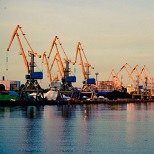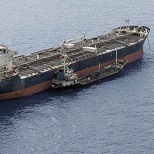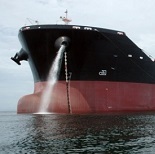Force-Majeure: practical legal consequences
Clear contractual terms usually guarantee successful transaction. But sometimes occurring force majeure events negatively impact the parties, who face problems in fulfillment of their contractual obligations. Usually such problems entail additional financial liabilities.
The term “force — majeure” is commonly understood as “irresistible force” or “incidental event”, which impedes the occurrence of counterparty’s performance of contractual obligations. The terms “incidental event” and “force majeure” are not exhaustive and was not identified specifically by Ukrainian legislator until recently.
The force majeure clause in English law
As we know In English law force — majeure is purely contractual term. If terms on force — majeure are included in the contract, the party may be exempt from liability. Force majeure clause requires special attention. Typically such a clause consists of two parts (the first — specifies the force majeure events, usually emphasizing the inexhaustible character of those circumstances, and the second one defines possible legal consequences). To prove the occurrence of force majeure is the responsibility of the party who is not willing or able to fulfill the obligations. Such a party must prove that the circumstances prevailing are force majeure and subject to the force majeure clause.
Ukrainian Force-Majeure: Changes in national legislation
Recent developments in Ukraine — Crimea occupation and war in the Donbas necessitated the introduction of specific rules related not only to functioning of the banking system and the suspension of some businesses, but also other changes in public and private law and regulation.
In English law and national law concept of “force majeure” is differently expressed in a contract.
The differences lie in the fact that in English law force majeure is a concept of contractual nature only and is specific enough, which may differ in different contracts.
National Law specifically defines the concept of “force majeure” which is standardized and recognized. In this situation we can speak of a conflict and some difficulties in the practical use of force majeure clauses. We can also mention the problem of recognition and ambiguous interpretation of force majeure in the case of disputes involving P & I clubs. Therefore it is necessary to take into account the fact that in the English law practice “standard” force majeure clause is not commonly used, but the parties specifically prescribe all possible cases of force majeure, which they recognize as such.
In the national legislation of Ukraine unambiguous and consistent definition of “force majeure” also was missing until recently.
The main innovation in this regard is related to the recently enacted Law of Ukraine “On temporary measures for the period of anti-terrorist operation” and amendments to the Law of Ukraine “On the Ukrainian Chambers of Commerce and Industry.”
Those changes determine the force majeure as “extraordinary and unavoidable circumstances that make it impossible to objectively perform obligations under the terms of the agreement (contract), or obligations under the laws and other regulations, namely the threat of war, armed conflict or serious threat of such conflict, including but not limited to enemy attacks, blockades, military embargo, acts of foreign enemies, general military mobilization, war, declared and undeclared, acts of public enemy, disturbances, acts of terrorism, sabotage, piracy, riots, invasion, blockade, revolution, rebellion, insurrection, riots, curfews, expropriation, forced removal, takeovers, requisition, public demonstrations, strike, accident, wrongful acts of third parties, fire, explosion, prolonged outages of transport regulated by relevant decisions and acts of public authorities, closure of the Straits, embargo, prohibition (restriction) for export / import, etc., and emergency events caused by exceptional weather conditions and natural disasters, namely epidemic, severe storm, cyclone, hurricane, tornado, flood, snow accumulation, ice, hail, frost, freezing sea, canals, ports, passes, earthquake, lightning, fire, drought, subsidence and landslide and other natural disasters, etc.”
Although the concept of force majeure is clearly defined, the list of extraordinary and unavoidable circumstances is certainly not exhaustive.
Also the innovations empower Ukrainian Chamber of Commerce and Industry (UCCI) and, that actually new, — Regional Chambers of Commerce and Industry certify of force majeure upon request of the persons concerned. The fact of force majeure is confirmed by the relevant certificate of UCCI, issued within seven days from the date of application.
Competence of UCCI on the testimony of force majeure, as defined in the law, previously was partial as it was limited to certification of force majeure only in terms of international trade contracts, international treaties of Ukraine and at the appeals of business entities engaged in housing (developing) contracts.
Practical value of changes
Until recently, it was possible to speak of a certain complexity of the procedure to confirm the presence or absence of force majeure in Ukraine. In practice, the parties used to simplify this procedure for themselves when included in contracts a condition under which documents issued by relevant government authorities or agencies authorized to certify certain circumstances according to their powers and jurisdiction were accepted as sufficient evidence of force majeure.
Disputes often arose in terms of admissibility of such evidence, whereas such documents were taken into account only by the parties who agreed to their use in the relevant arbitration clause.
Today, the procedure for confirmation of force majeure is more simple and unified. Ukrainian Chamber of Commerce and Industry and its authorized regional chambers are the only institutions in Ukraine authorized to issue certificates to evidence force — majeure.
Conclusion
So the above mentioned changes in civil legislation of Ukraine entrenched the concept of “force majeure” in Ukrainian legal framework. The above is not exhaustive, but the presented list of “force majeure events” is fairly complete and specific, allowing more clear and unambiguous interpretation of force majeure in contractual relations and in disputes.
Also, procedure for recognition of force majeure by Ukrainian Chamber of Commerce and Industry has been improved and standardized. That should save time and money of contracting parties in cases of controversy in meeting their contractual obligations.
Published in IBA.
(1).png)
Cargo transportation by sea is one of the most reliable and most expensive methods of goods delivery worldwide. Sea lines are one of...

A NEW INITIATIVE BY THE MINISTRY OF TRANSPORT AND INFRASTRUCTURE The new regulation that entered into force in 28 April 2021 has impo...

Dear colleagues, Here is Quarterly Shipping newsletter broght to you by Interlegal. Let us present the most valuable cases and n...

The issue of the port and berth safety is among those which raise various disputes between the interested parties. As the reasons for declar...

Although travel restrictions are beginning to ease, there are still restrictions in many countries impacting on crew changes. The new clause...
 Ship arrest in Ukraine: new approaches2020.06.18
Ship arrest in Ukraine: new approaches2020.06.18The concept of one shipowner – one vessel The concept of one shipowner – one vessel arose due to shipowners’ reasonable desire to secure...

Task The Client – large bunkering company making business in Black Sea Region – applied to Interlegal for debt recovery for bunker supply...

Dear Interlegal clients, Please be informed that in the third quarter of the 2019 year significant changes of Ukrainian legisla...

A presidential decree has been published in the official gazette on 03.05.2019 marking the date on which the 1999 Convention officially beca...
 LMAA arbitration notice clause2019.02.27
LMAA arbitration notice clause2019.02.27The LMAA has published a clause for use in arbitration agreements to facilitate effective notice by email (including for commencement of arb...





 Odessa, 65014, Ukraine, 1 а, Gretska St
Odessa, 65014, Ukraine, 1 а, Gretska St
